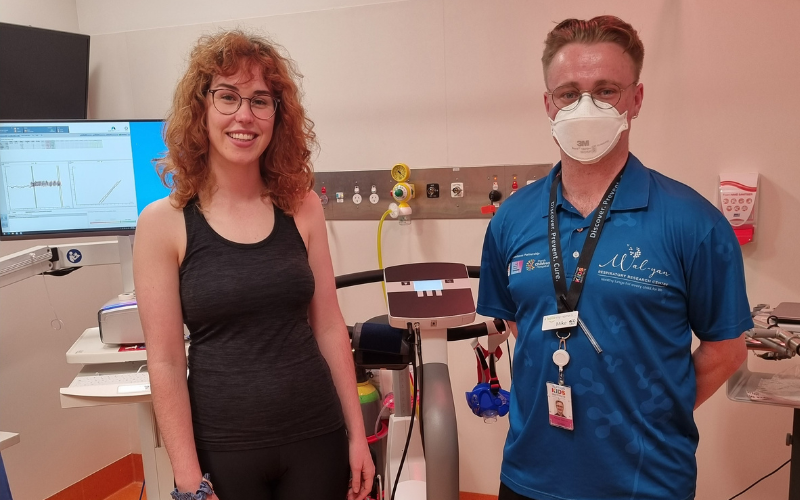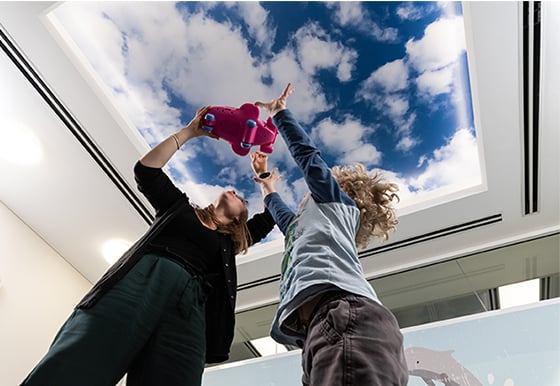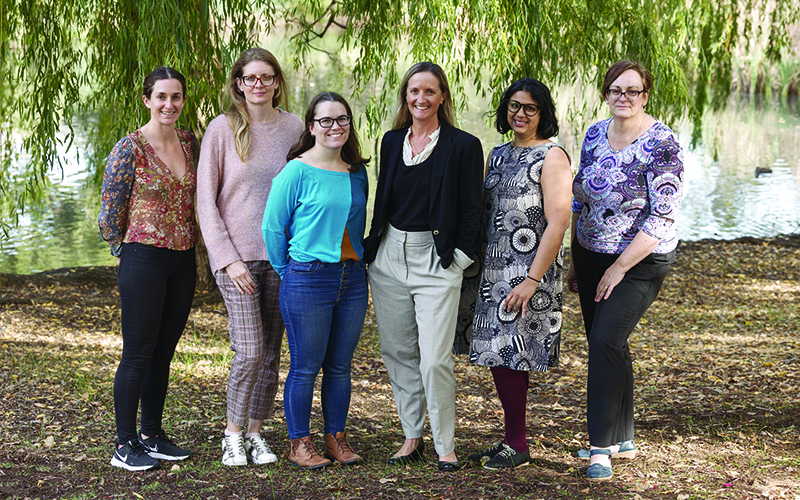Search
Showing results for "early life"

News & Events
Thumbs up from first preterm study participant to use new lung function testing equipmentNatasha, who is a participant in the West Australian Lung Health in Prematurity (WALHIP) study, this week became the first person to receive a lung health assessment using new state-of-the-art lung function testing equipment at Perth Children’s Hospital.

News & Events
How much is the right amount of therapy?In this blog, CliniKids Director Professor Andrew Whitehouse and Research Development Manager Sarah Pillar explore one of the most common questions when it comes to support for autistic children - how much is the right amount of therapy?
Research
Wet CoughA wet cough in a child for more than four weeks could indicate infection in the lungs. The wet cough is caused by mucus in the airway. The mucus becomes infected with bacteria and causes airway inflammation that can progress to permanent lung damage known as bronchiectasis.
Research
Pets Are Associated with Fewer Peer Problems and Emotional Symptoms, and Better Prosocial Behavior: Findings from the Longitudinal Study of Australian ChildrenPets may protect children from developing social-emotional problems and should be taken into account when assessing child development and school readiness
Research
Cerebral PalsyA non-progressive motor disability due to damage of the developing brain, this is the most common physical disability in childhood. Affecting about one in 500 babies, it is frequently accompanied by other neurological impairments, such as intellectual or sensory.
Research
The ventilatory response to hypoxia is blunted in some preterm infants during the second year of lifePreterm birth and subsequent neonatal ventilatory treatment disrupts development of the hypoxic ventilatory response (HVR). An attenuated HVR has been identified in preterm neonates, however it is unknown whether the attenuation persists into the second year of life.
Research
Jurisdictional, socioeconomic and gender inequalities in child health and development:Early child development may have important consequences for inequalities in health and well-being. This paper explores population level patterns of child...

Childcare centres have flocked to take up a new evidence-based policy to help ensure young children get more of the physical activity they need to be healthy and developmentally on track.
Research
Methodology of Young Minds Matter: The second Australian Child and Adolescent Survey of Mental Health and WellbeingAims, sample design, development of survey content, field procedures and final questionnaires of the Young Minds Matter study
Research
Parental smoking, maternal alcohol consumption during pregnancy and the risk of neuroblastoma in children. A pooled analysis of the ESCALE and ESTELLE French studiesOur findings provide some evidence of an association between maternal smoking during pregnancy and Neuroblastoma
